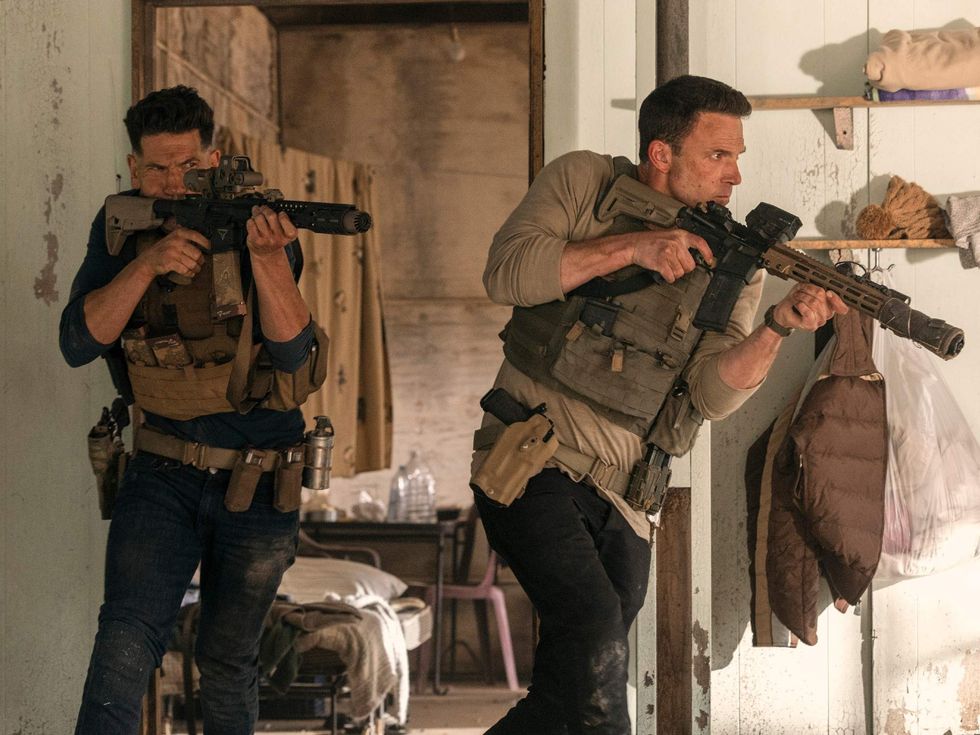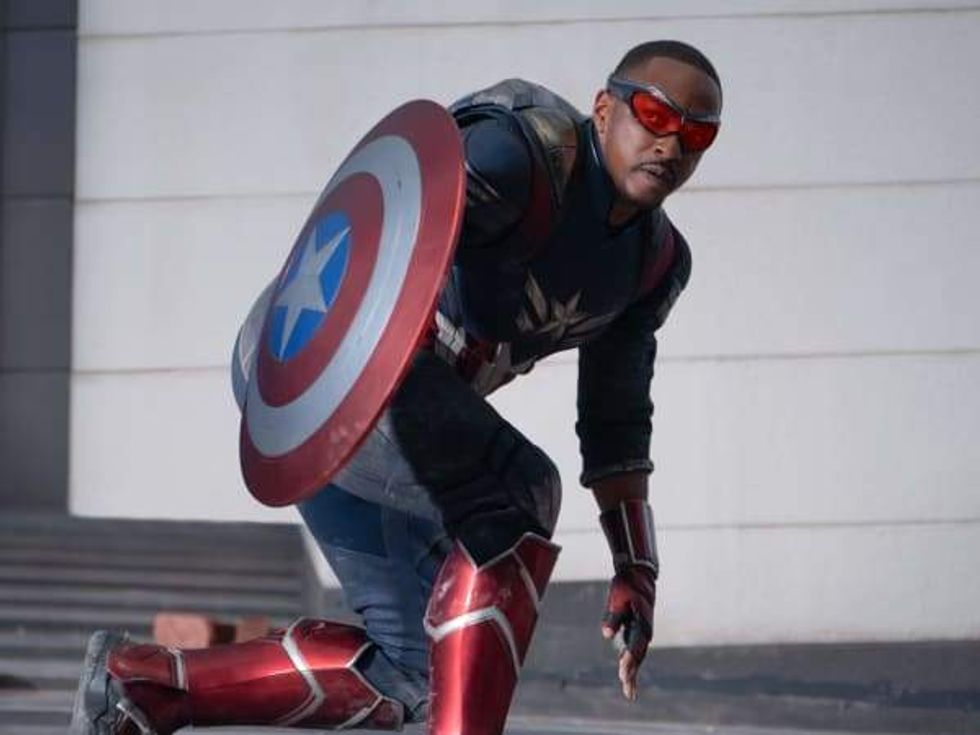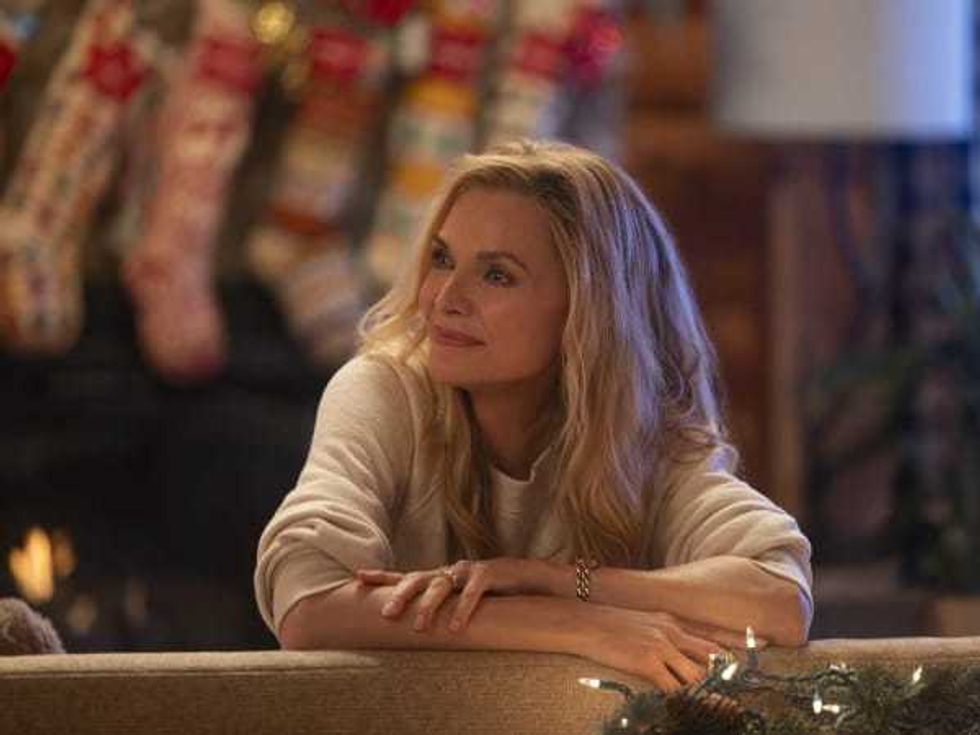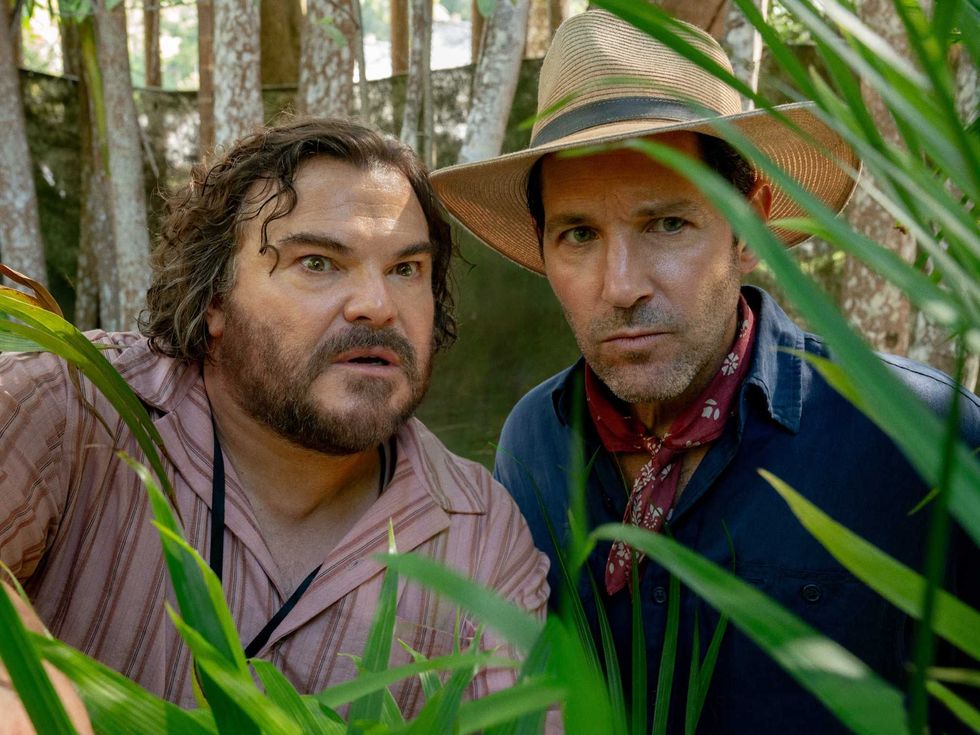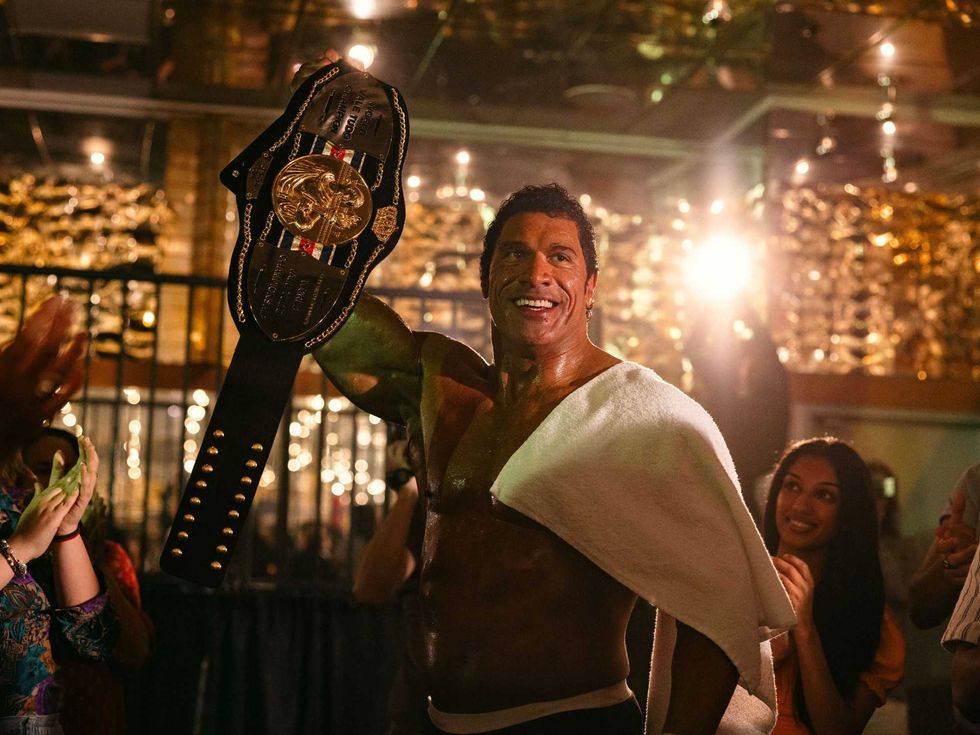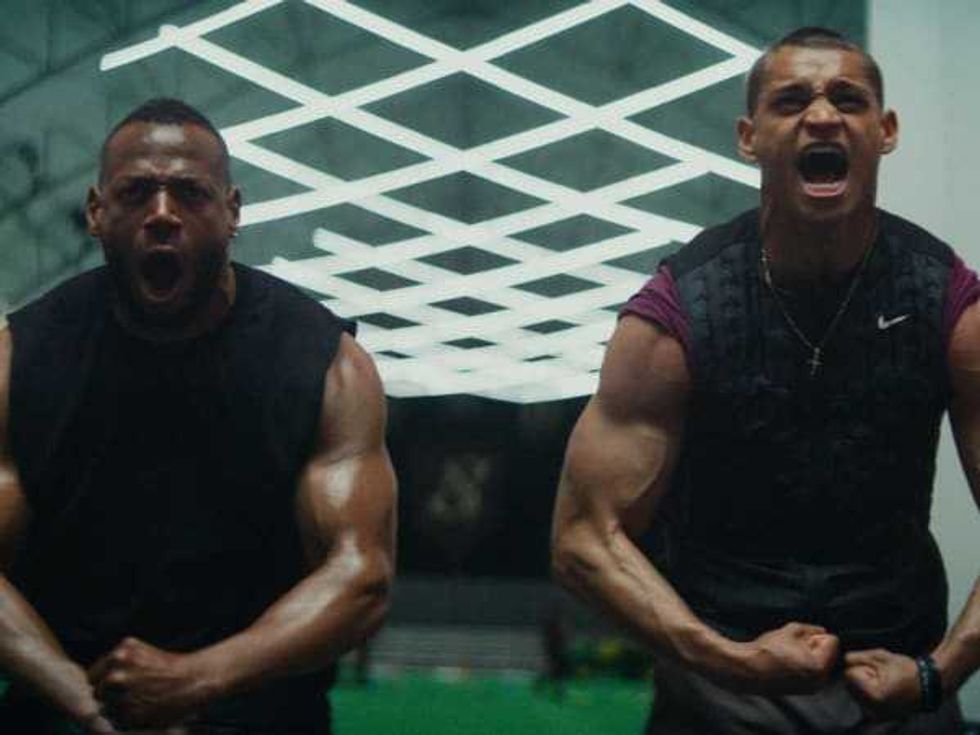Li Cunxin makes a Houston stop to celebrate Mao's Last Dancer's success
 Li Cunxin greets former Houston Ballet prima ballerina Suzanne Longley and herhusband, Randall Morton (center)Photo by Caleb Bryant Miller
Li Cunxin greets former Houston Ballet prima ballerina Suzanne Longley and herhusband, Randall Morton (center)Photo by Caleb Bryant Miller Li autographs a copy of the programPhoto by Caleb Bryant Miller
Li autographs a copy of the programPhoto by Caleb Bryant Miller Li Cunxin, left, Charles FosterPhoto by Caleb Bryant Miller
Li Cunxin, left, Charles FosterPhoto by Caleb Bryant Miller Li poses with the Dance of Asia American troupe backstage. The dancers performedbefore the moviePhoto by Caleb Bryant Miller
Li poses with the Dance of Asia American troupe backstage. The dancers performedbefore the moviePhoto by Caleb Bryant Miller Li greets guests at the screening.Photo by Caleb Bryant Miller
Li greets guests at the screening.Photo by Caleb Bryant Miller
When Li Cunxin stopped in Houston to promote the May 1 DVD and Blu-Ray release of Mao's Last Dancer, the surprise art house hit movie that details his amazing life, we thought it would be a perfect opportunity for him to tour the new Houston Ballet Center for Dance before talking about the movie's success.
Impressed by the new building while wistfully watching the company in one of the large studios, he recalled that when the Houston Ballet moved from a cramped building on Colquitt to more spacious quarters on West Gray in 1984, "I thought I had died and gone to heaven. But this takes it to a whole new level."
"The dancers should be feeling very lucky. But I'm not surprised that Houston could pull this off. I remember during one of the major economic downturns (in the mid-1980s), they built the Wortham. There is a tremendous philanthropic spirit in this city."
Though Li left Houston in 1995 to join the Australian Ballet (his wife, former Houston Ballet principal dancer Mary McKendry, is an Australian native), he still has a soft spot in his heart for the Bayou City and the feeling is mutual.
Li, who turned 50 in January but looks a good decade younger, screened the movie for a packed audience of more than 500 at Zilkha Hall in the Hobby Center Thursday night, followed by an extensive question-and-answer session. Afterwards, friends he hadn't seen for a long time gathered around the stage and the session went on until everyone had to be asked to leave because managers had to close the building for the evening.
The movie recounts how Li was taken from his family at an early age to study dance at a school far from his Chinese village, his first trip to the United States as an exchange student at Houston Ballet and his dramatic defection in 1981. He was detained at the Chinese Consulate on Montrose Blvd. in what threatened to become an international incident until the Chinese government reversed course and allowed him to stay in the United States.
The book closely follows Li's book by the same title that is an international best seller, sold in 30 countries and now in its 52nd print edition.
Among those on hand were former Houston Ballet stars Suzanne Longley, Janie Parker and Lauren Anderson, financier Peter Conway, who as chair of the ballet board encouraged Li to pursue a career as an investment banker when his ballet career ended, and attorney Charles Foster, who represented Li when he defected.
Former U.S. Federal Judge John Singleton, who assisted Foster in facilitating Li’s release, celebrated his 91st birthday by seeing the film for the first time. He waved to the audience amid thunderous applause when Foster introduced him afterwards.
During an interview in a ballet center conference room Friday morning, Li touched on his successful career in ballet and investment banking, offered his views on China, why the movie about his life is so darn popular and his eternal affection for Houston. Here are some excerpts:
CultureMap: Mao's Last Dancer surprised everyone when it did so well at the box office. Why was it so popular?
Li Cunxin: The movie was so well made. They stayed very true to my story. Hollywood can often take it so far away from the truth. It's the kind of story that people tend to take hope and encouragement from.
CM: How many times have you seen it?
LC: Last night was the twelfth time. I wasn't intending to, but Charles Foster wanted me to sit next to him. I thought it would be special to share that experience with him once again. At times, we whispered to each other, chipped in our thoughts. It was very special.
CM: You made the transition from ballet star to successful investment banker in Melbourne. How were you able to make it look so effortless?
LC: I had to work really hard. During my last 2-1/2 years of dancing, I got my financial degree by correspondence in Australia. So by the time I finished my dancing career I already had a job waiting for me.
But for those 2-1/2 years, I got up at 5:30 in the morning to do my ballet practice and then study or go to the stock exchange by 8 in the morning. When most dancers were just getting up, I was putting in a couple of hours of work. And then by noon I would change from a business suit and tie into my dance clothes and start rehearsing and then perform that night. I wouldn't get to bed until midnight and would get up at 5:30 in the morning and do it all again. So that was my schedule for 2-1/2 years. But it allowed me to make the transition and feel comfortable enough to know enough about the financial world, so I wasn't afraid.
CM: You also are a successful motivational speaker and address major corporations. What do you talk about?
LC: I use my story as the foundation. I talk about commitment, about passion, about overcoming adversity. And how to embrace changes that come your way in life; what kind of mindset you should have to get yourself up to that maximum performance stage. A lot of these things are quite relevant to the corporate world.
LC: Quite frequently. My mother is still alive, so I want to see her every chance that I get. And I have six brothers back there.
CM: How has China changed since your childhood?
LC: It's a whole new country. My own village (located about 1,000 miles from Beijing) went through a total transformation about six years ago where all of the old houses were torn down. We bought my parents a very nice apartment. All my brothers live in beautiful five or six-story apartment buildings. It's totally changed. When you go to Bejing or Shanghaii, you get a sense it could be New York or London — only things look even newer; the buildings look posher.
CM: But it's still a place where dissidents, like the artist Wei Wei, are reigned in.
LC: They still have a long way to go. I'm cautiously confident that as the leadership in China becomes younger, the newer generation of leaders will continue to open up China and improve its human rights record and allow different voices, even opposite voices, to allow that to survive. That's the only way to continue to move China forward to a better future.
CM: Do you have any problem traveling freely in China?
LC: No, as long as they don't see me as going to scare up negative sentiment, which I don't have any interest in doing that. I always have the best interests in China in my heart. I want China to continue to prosper and for people's lifestyles to become better. As Chinese, I would hope that would happen. I will do whatever I can to make positive contributions in the relationship between Chinese and the western world.
CM: What is your favorite part of the movie?
LC: When my parents see me dance that night (in Houston). I will never forget that moment. I think so many people in Houston still have that memory as well, even though so many years have passed. I've been away from Houston for 16 years, but the way people embrace me even on the streets or in a restaurant, I'm constantly stunned by the recognition and the respect this city still has for me. Every time when I land at the Houston airport, there's always the same sense of homecoming for me.
CM: Do you dance at all now?
LC: I do a little bit of (ballet) dancing, mainly for fitness. And I'm on the board of the Australian Ballet, the national company.
CM: What about your kids?
LC: My two girls (Sophie, 21 and Bridie, 13) dance, my son (Tom, 18) doesn't. They do it for fun. For our young daughter, we don't know where she might take it. Whatever they want to do, as long as they do it with passion, that's all we will ask them.
CM: Any last thoughts?
LC: I'm very proud to be part of the Houston Ballet history and to see it continue to thrive in such fashion. My entire career was only 20 years, so Houston was 16 years of that (from 1979-1995). I loved every minute of it. It was exciting to see Ben Stevenson virtually build this company from a very low base. It was hard, it was challenging but we all shared the most unbelievable vision and I'm so glad to see that vision is continuing today.
The DVD and Blu-Ray editions of Mao's Last Dancer go on sale May 1, exclusively at Target for one week, then available at all outlets. The DVD includes footage of scenes cut from the film, interviews with Li and the director, Bruce Beresford.



